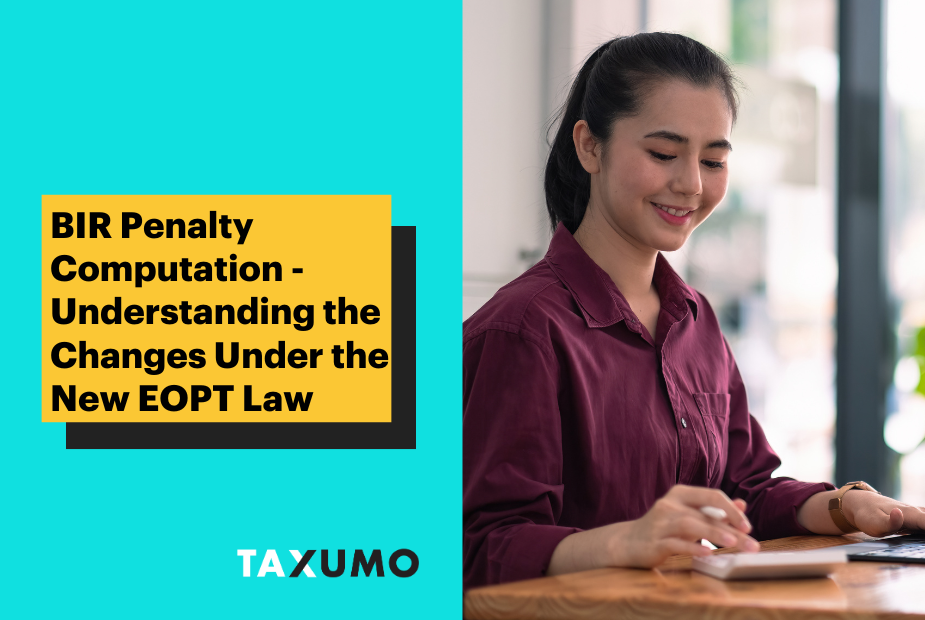The Ease of Paying Taxes (EOPT) law, effective from January 22, 2024, brings significant changes to how the Bureau of Internal Revenue (BIR) classifies taxpayers and changes in the BIR penalty computation, aiming to simplify tax administration and ensure equitable treatment for all. This guide explores the implications of these changes, especially for micro and small taxpayers, and provides insights into navigating the new penalty structure.
Taxpayer Classifications under the EOPT Law
The EOPT law categorizes taxpayers into four groups based on their annual gross income:
- Micro Taxpayer: Gross income less than Php 3 million.
- Small Taxpayer: Gross income between Php 3 million and Php 20 million.
- Medium Taxpayer: Gross income between Php 20 million and Php 1 billion.
- Large Taxpayer: Gross income exceeding Php 1 billion.
This classification affects not only how businesses report taxes but also how penalties for non-compliance are assessed. To update your taxpayer classification in Taxumo, click here.
Changes in BIR Penalty Computation for Micro and Small Taxpayers
The implementation of RR No. 6-2024, part of the EOPT law, changes BIR penalty computation specifically for micro and small taxpayers. These adjustments better match the financial capacity of smaller businesses, making penalties more manageable and less burdensome.
Here’s a breakdown of the new penalty framework:
- Surcharge: Reduced to 10% of the tax due, previously higher under the old system.
- Interest: Set at 6% per annum on any unpaid tax, recalibrated from previous rates.
- Compromise: Fixed at 50% of the amount specified in the updated compromise table, which can be reviewed here.
These changes aim to provide a more reasonable penalty system that supports small business growth and compliance without the heavy financial strain often associated with tax penalties.
Effective Date and Application of Changes in BIR Penalty Computation
The changes introduced by the EOPT law took effect on January 22, 2024, and apply prospectively. This means that the new rules for penalty computation only apply to taxes filed for the 2024 taxable year and onwards. This provides all taxpayers, especially those reclassified under the new system, sufficient time to understand and adjust to these changes.
Key Takeaways
The new penalty computation under the EOPT law creates a fairer tax system for micro and small businesses in the Philippines. By reducing penalties and aligning them with the taxpayer’s ability to pay, the BIR aims to encourage voluntary compliance and ease the tax burden. For detailed information and compliance, consult a tax professional or explore resources on platforms like Taxumo.

Pingback: Income Tax Filing in the Philippines: FAQs for 1701Q and 1701 (2025 Guide)